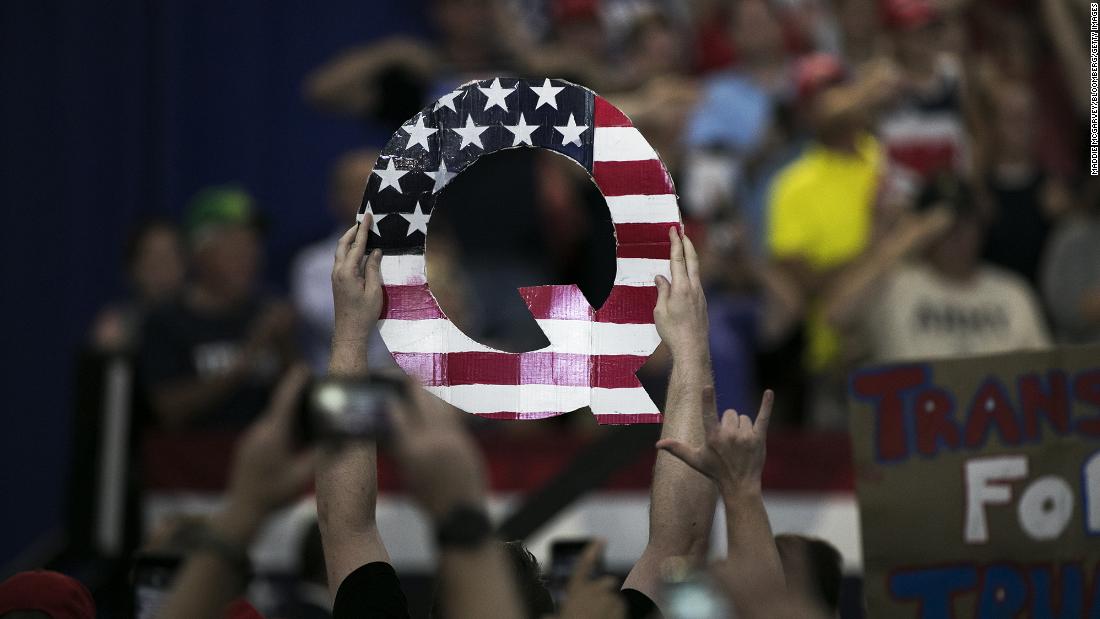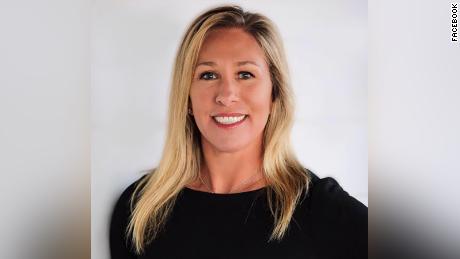Analysis: We’re talking about QAnon all wrong
Despite all of that, or maybe because of all that, this dangerous nonsense seems to be spreading. It is cropping up in congressional races and national news coverage.
In recent weeks many observers of the online information ecosystem have written, with growing concern, about the mainstreaming of QAnon. Reporters like Kevin Roose of The New York Times and Ben Collins of NBC have said that the conspiracy theory is in much wider circulation than polite society wants to admit.
The GOP’s QAnon caucus?
In media circles, there is considerable debate about how to cover this phenomenon. On Thursday Roose responded to some commenters who criticized him for giving the cult a platform by saying “Friends, I’m afraid that horse has left the barn, bought a laptop, gone to 8kun, posted a drop in a 200,000-member Facebook group, laundered it onto cable news, and filed papers to run for Congress.”
Numerous Republican congressional candidates “have embraced” QAnon, as CNN’s Veronica Stracqualursi reported earlier this week.
At the top of the list is Marjorie Taylor Greene, who is all but certain to win her House race in Georgia this fall. Trump praised Greene for winning her primary. As Stracqualursi wrote, candidates like Greene are “espousing and promoting QAnon theories and phrases as they seek political office on a major party ticket.”
‘A system of radicalization’
So I asked her to elaborate. Here’s what she wrote to me: “QAnon offers its adherents an addictive alternative reality that requires their participation and, through this participation, draws them into the elaborate architecture of the conspiracy. It exploits the sense that something is broken in our society. But rather than focus on understanding these social fractures and healing them, QAnon instead fixates on the pursuit of enemies and villains described in such extreme terms that any action — either by adherents or by identified champions like President Trump —becomes justifiable. By drawing on the culture and value system, Q adherents have justified violent attacks.”
It’s more than a ‘conspiracy’
McKew made the case to me that when Q is “just labeled ‘a conspiracy’ — which is usually correct in categorizing the quality of its content — this in effect diminishes the scope and scale of the danger.” She said “it is important to talk about how it is an extremist ideology linked to violent attacks. It is important to talk about not just the cartoonish-seeming beliefs about cannibalism and fighting super-pedophiles, but to explain that it glorifies the military and militant actors as a means of recruiting believers; that it is also intertwined with incredibly extreme interpretations of Christian beliefs — so much so that some Christian preachers have issued warnings about QAnon. ‘Conspiracist’ conjures images of Alex Jones-like hysteria paired with the hawking of vitamin supplements and doomsday equipment. ‘Extremist ideology’ and ‘radicalized followers’ are more accurate terms to express the danger of QAnon. No, we don’t want to inflate its importance. But when it will have a caucus in Congress, potentially, the horse will be out of the barn there.”
Recommended reads
“QAnon is emblematic of modern America’s susceptibility to conspiracy theories, and its enthusiasm for them,” she wrote. “But it is also already much more than a loose collection of conspiracy-minded chat-room inhabitants. It is a movement united in mass rejection of reason, objectivity, and other Enlightenment values. And we are likely closer to the beginning of its story than the end. The group harnesses paranoia to fervent hope and a deep sense of belonging. The way it breathes life into an ancient preoccupation with end-times is also radically new. To look at QAnon is to see not just a conspiracy theory but the birth of a new religion.”
“It’s one of those sort of more mind-melting aspects of the QAnon universe,” she said: “As you can present them with evidence, you can demonstrate how the predictions have gone wrong, and they don’t seem to care.”
Further reading
![]()




